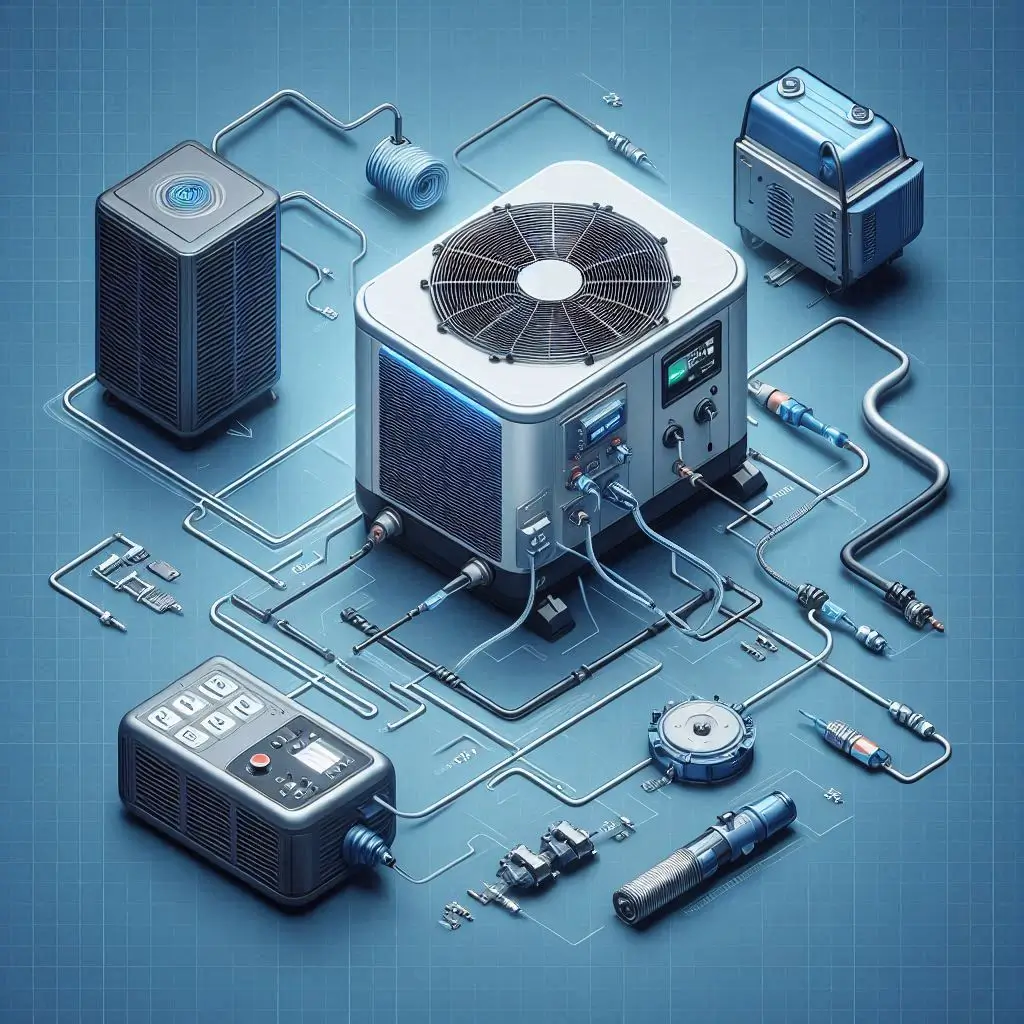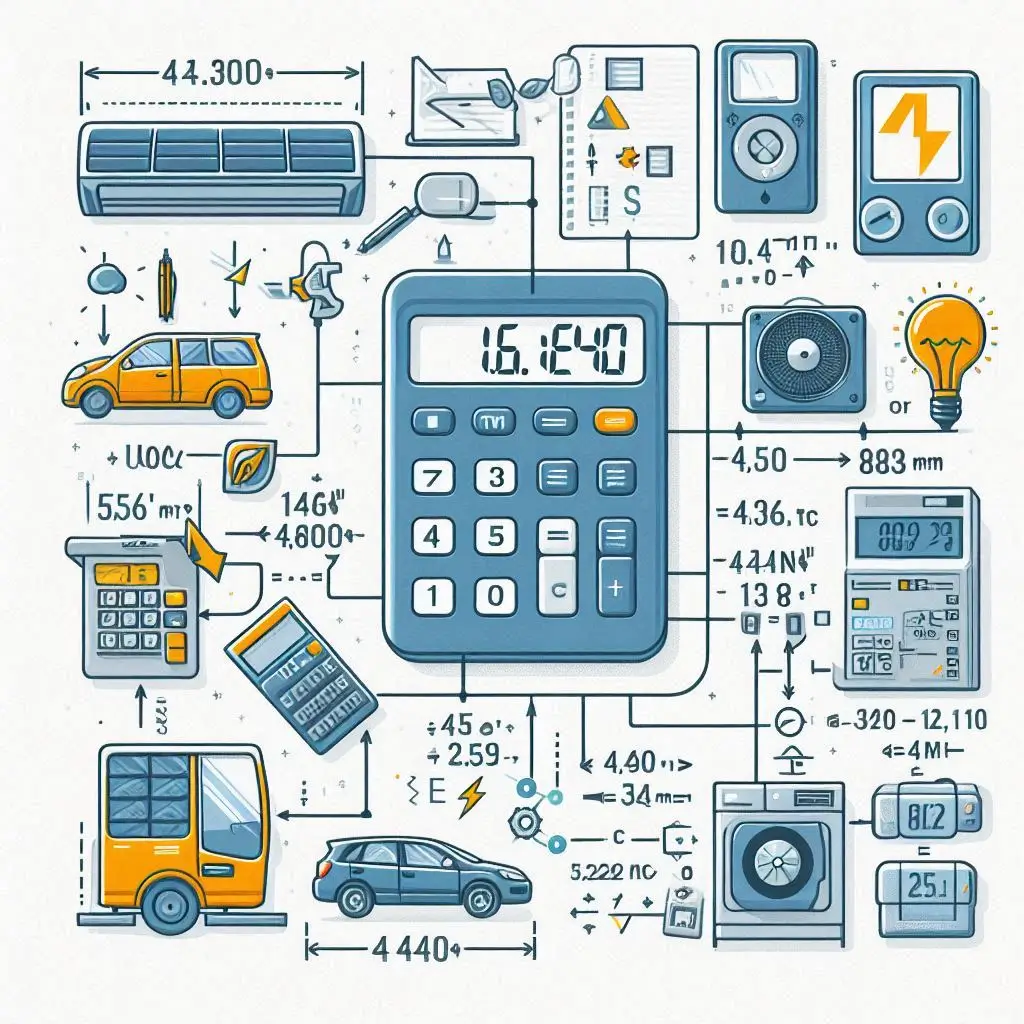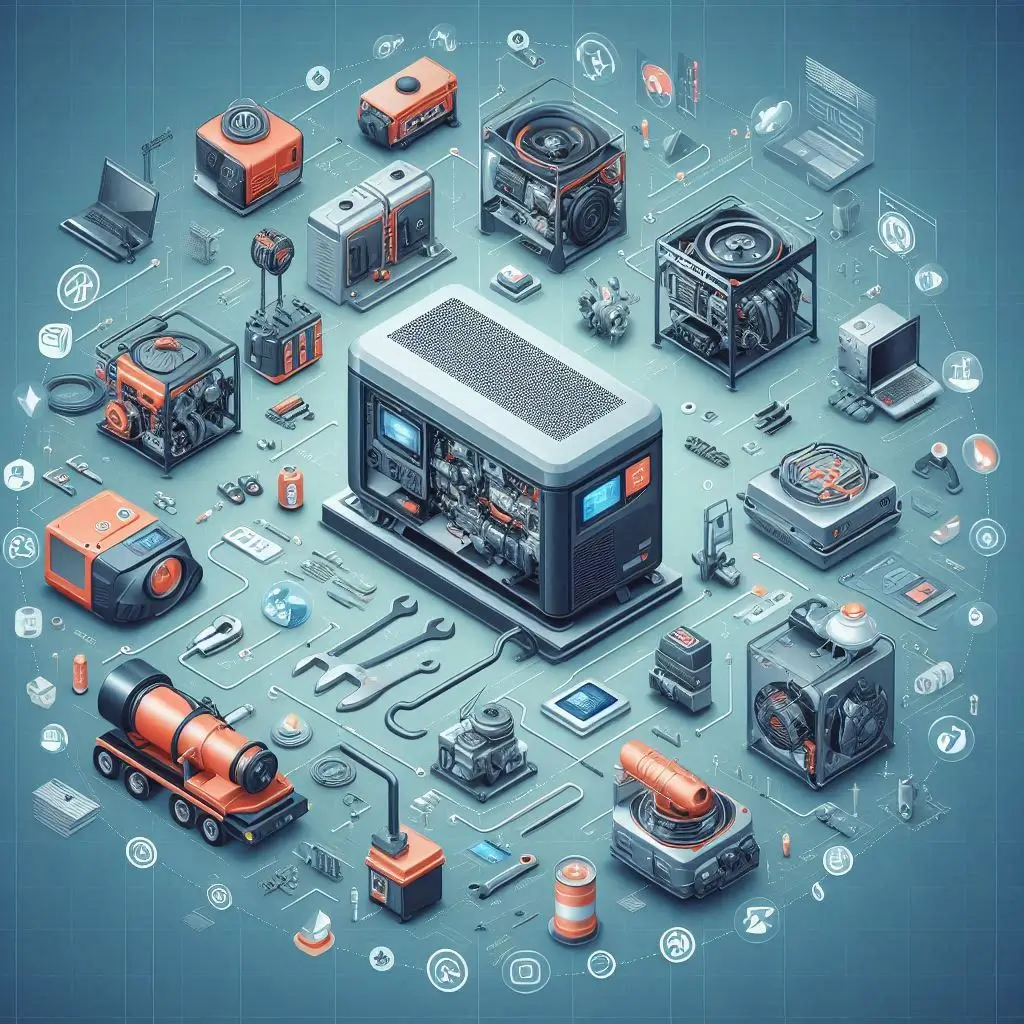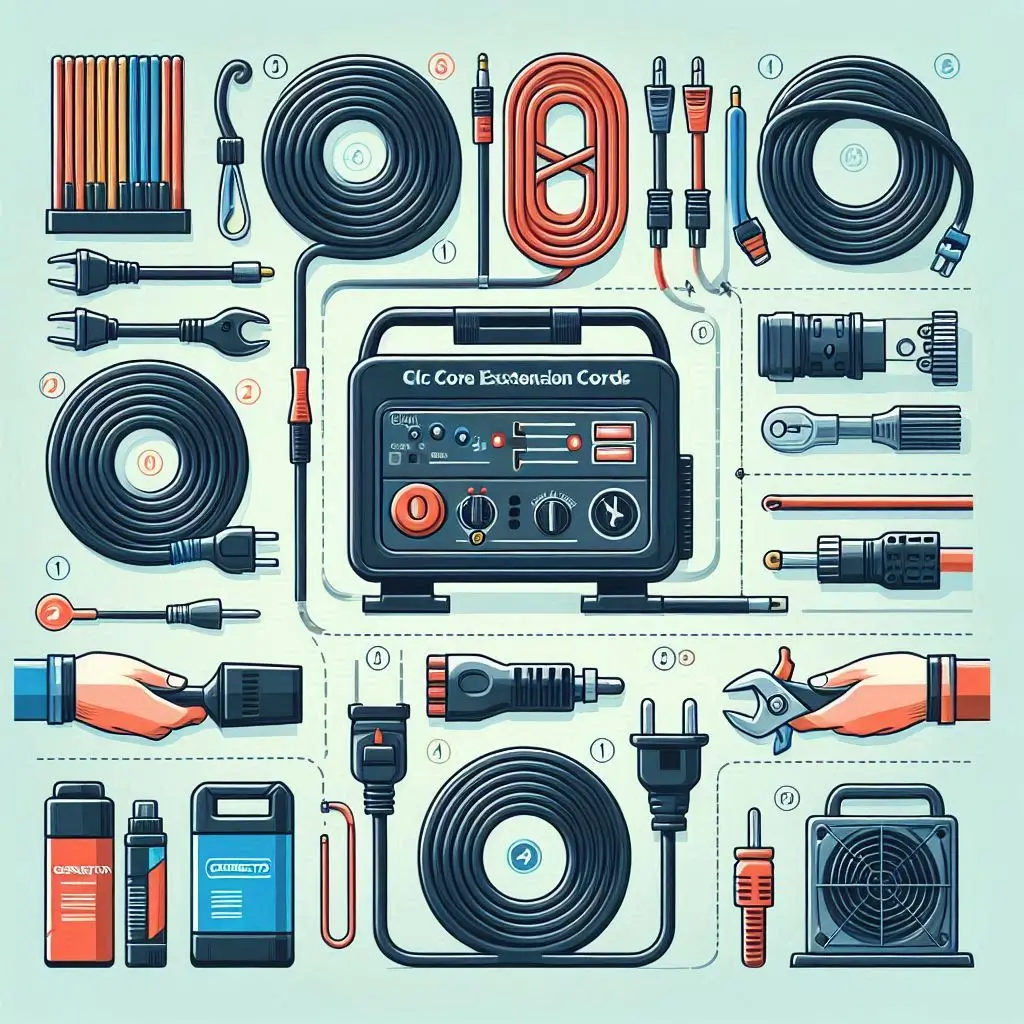What Size Generator to Run Air Conditioner: A Complete Guide
In this comprehensive guide, we will explore what size generator to run an air conditioner effectively. Understanding the power requirements of your AC unit is crucial for ensuring reliable cooling, especially during power outages. With various generator options available, it’s important to know how to choose the right size and type to meet your needs. Whether you have a central air system or a portable unit, this guide will help you make an informed decision.
Choosing the right generator size for your air conditioner is crucial for ensuring optimal performance and efficiency. An undersized generator can lead to insufficient power, causing your AC unit to struggle, overheat, or even fail to start. Conversely, a generator that is too large may lead to inefficiencies and increased operational costs. Understanding the power requirements of your air conditioning system and matching them with the appropriate generator size will help you maintain a comfortable environment in your home, especially during power outages.
In this comprehensive guide, we will explore what size generator to run an air conditioner effectively. Understanding the power requirements of your AC unit is crucial for ensuring reliable cooling, especially during power outages. With various generator options available, it’s important to know how to choose the right size and type to meet your needs. Whether you have a central air system or a portable unit, this guide will help you make an informed decision.
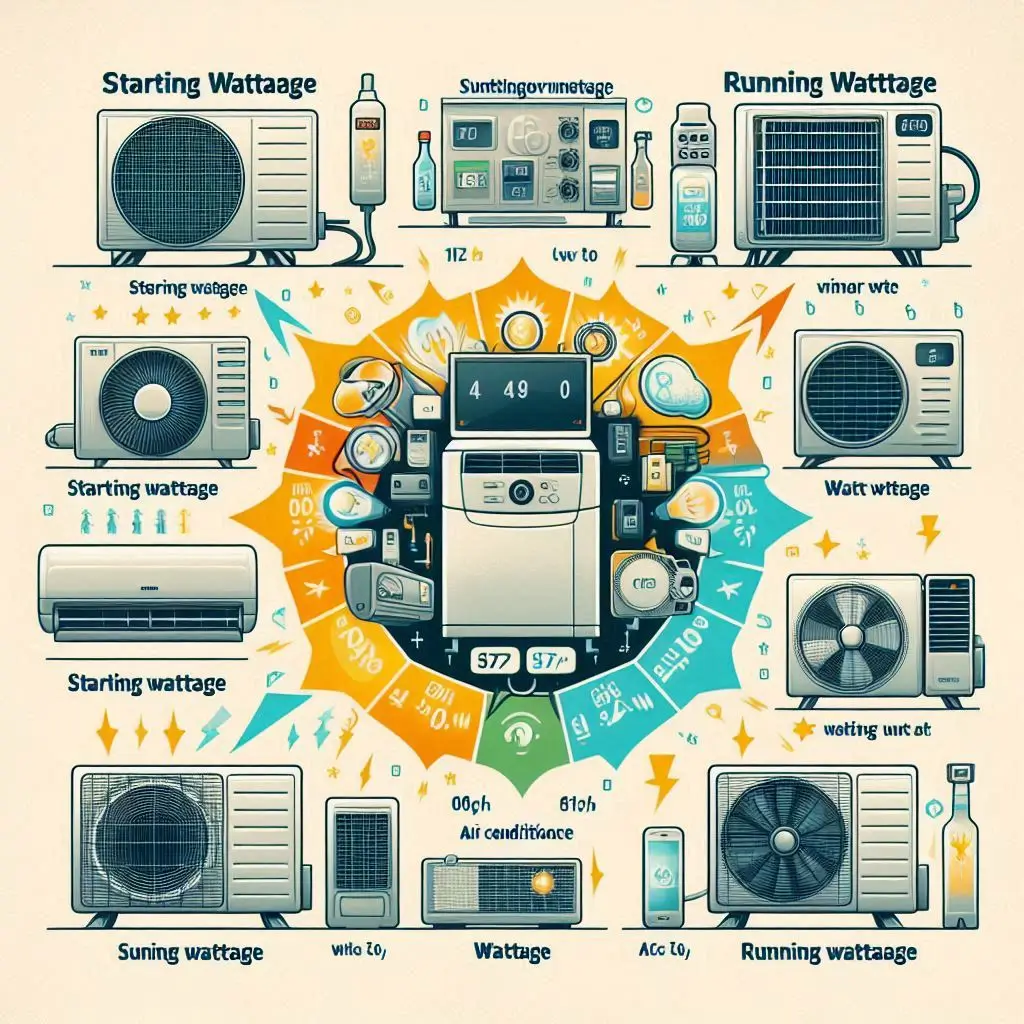
Factors to Consider:
-
Power Requirements: Every air conditioning unit has specific power requirements, usually measured in British Thermal Units (BTUs) and wattage. Central air conditioning systems typically require more power than window units. To determine the right generator size, you need to know the starting and running wattage of your AC unit.
-
Starting vs. Running Wattage: Air conditioners require a significant amount of power to start, known as starting wattage, which can be up to three times their running wattage. Ensure that the generator can handle this surge in power at startup.
-
Continuous Power Supply: It’s essential to choose a generator that can provide continuous power for the duration of an outage. This ensures that your air conditioning unit operates effectively without interruptions.
-
Compatibility: Not all generators are suitable for every type of air conditioning system. Ensure the generator you select is compatible with your AC unit, particularly in terms of voltage and frequency.
Conclusion: Selecting the correct generator size is a critical step in ensuring your air conditioning system runs efficiently during a power outage. Understanding your AC unit’s power needs and considering factors such as starting wattage and compatibility will help you make an informed decision, keeping your home comfortable and safe.
Determining Power Usage for Your AC Unit
To effectively run your air conditioner on a generator, it is essential to determine its power usage accurately. This involves calculating the British Thermal Units (BTUs) and wattage requirements of your air conditioning system. By understanding these power needs, you can select an appropriately sized generator to ensure optimal performance.
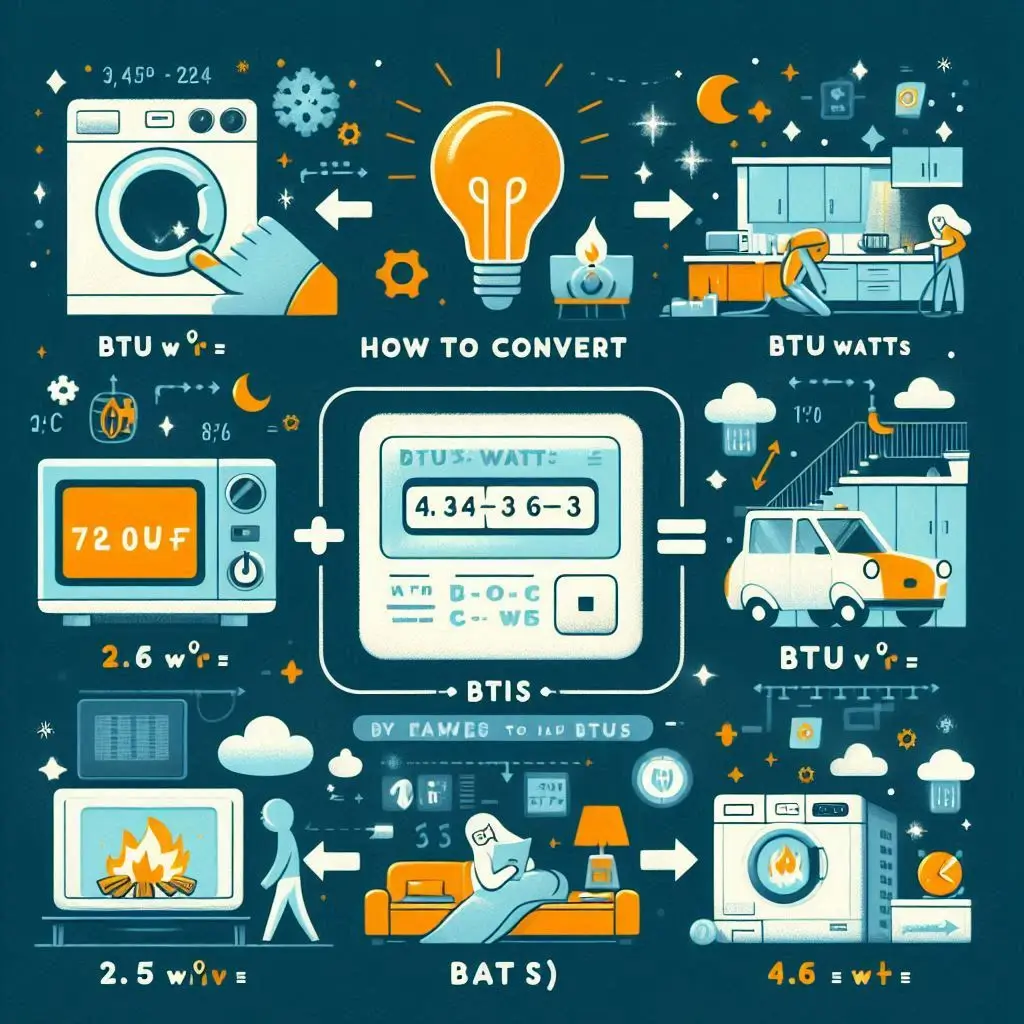
Calculating BTU and Wattage Requirements for What Size Generator to Run Air Conditioner
-
Understanding BTUs: BTUs measure the cooling capacity of an air conditioning unit. One BTU is the amount of energy required to cool one pound of water by one degree Fahrenheit. Air conditioners are rated based on their BTU capacity, which correlates with the size of the space they can effectively cool.
- Example: A 5,000 BTU air conditioner is suitable for cooling a room of approximately 150 to 200 square feet, while a 12,000 BTU unit can cool a space of 450 to 550 square feet. Understanding your space’s cooling requirements is the first step in determining the right AC unit and generator size.
-
Converting BTUs to Wattage: To find the wattage requirements of your air conditioning unit, you can use the following formula:
Wattage=BTUs2.93\text{Wattage} = \frac{\text{BTUs}}{2.93}Wattage=2.93BTUs
- For example, a 12,000 BTU air conditioner would require approximately 4,100 watts (12,000 BTUs ÷ 2.93).
-
Considering Starting and Running Wattage: It is important to differentiate between starting and running wattage. When an AC unit starts, it draws more power (starting wattage) than it does when it is running continuously (running wattage).
- General Rule: The starting wattage can be 2 to 3 times higher than the running wattage. For instance, if your AC unit’s running wattage is 4,100 watts, the starting wattage could be between 8,200 to 12,300 watts.
-
Using Manufacturer Specifications: Always refer to the manufacturer’s specifications or the owner’s manual for your air conditioning unit. This information typically includes the required wattage for both starting and running.
-
Calculating Total Power Needs: If you plan to run additional appliances alongside your air conditioning unit, consider their power requirements as well. Add the wattage of these devices to your AC’s running wattage to determine the total power needs.
- Example: If your AC requires 4,100 watts and you want to run a refrigerator (800 watts) and some lights (200 watts), the total power requirement would be 5,100 watts (4,100 + 800 + 200).
-
Choosing the Right Generator: Once you have determined the total wattage required, select a generator that can handle at least that amount of power, considering the starting wattage as well. A generator with a capacity slightly above your calculated needs will ensure it can handle the load without straining.
Types of Generators Suitable for Air Conditioning
When it comes to powering your air conditioning unit during an outage, selecting the right type of generator is crucial. There are two primary types of generators suitable for air conditioning: portable generators and standby generators. Each has its own set of advantages and considerations.
Portable Generators
Overview of Portable Generators:
Portable generators are versatile and can be easily moved from one location to another. They are typically powered by gasoline, propane, or diesel, making them a flexible option for emergency power. These generators come in various sizes and wattage outputs, making it essential to select one that meets your air conditioning unit’s power requirements.
-
Suitability for AC Units:
- Power Output: Portable generators can vary widely in power output, generally ranging from 1,000 to 10,000 watts. When selecting a portable generator for your air conditioning unit, ensure it has sufficient starting and running wattage to handle the load.
- Ease of Use: Portable generators are user-friendly, often featuring easy-start mechanisms and basic control panels. This makes them accessible for homeowners who may not have extensive experience with generators.
- Applications: Beyond powering air conditioners, portable generators can also power other essential appliances, such as refrigerators, lights, and fans, making them a practical choice for overall emergency power.
-
Limitations:
- Runtime: One of the drawbacks of portable generators is their limited runtime. Depending on the fuel capacity and load, these generators may only run for a few hours before needing refueling.
- Noise Levels: Portable generators can be noisy, which may be a concern in residential areas. Some models are designed to operate more quietly, but it’s essential to consider noise levels based on your location.
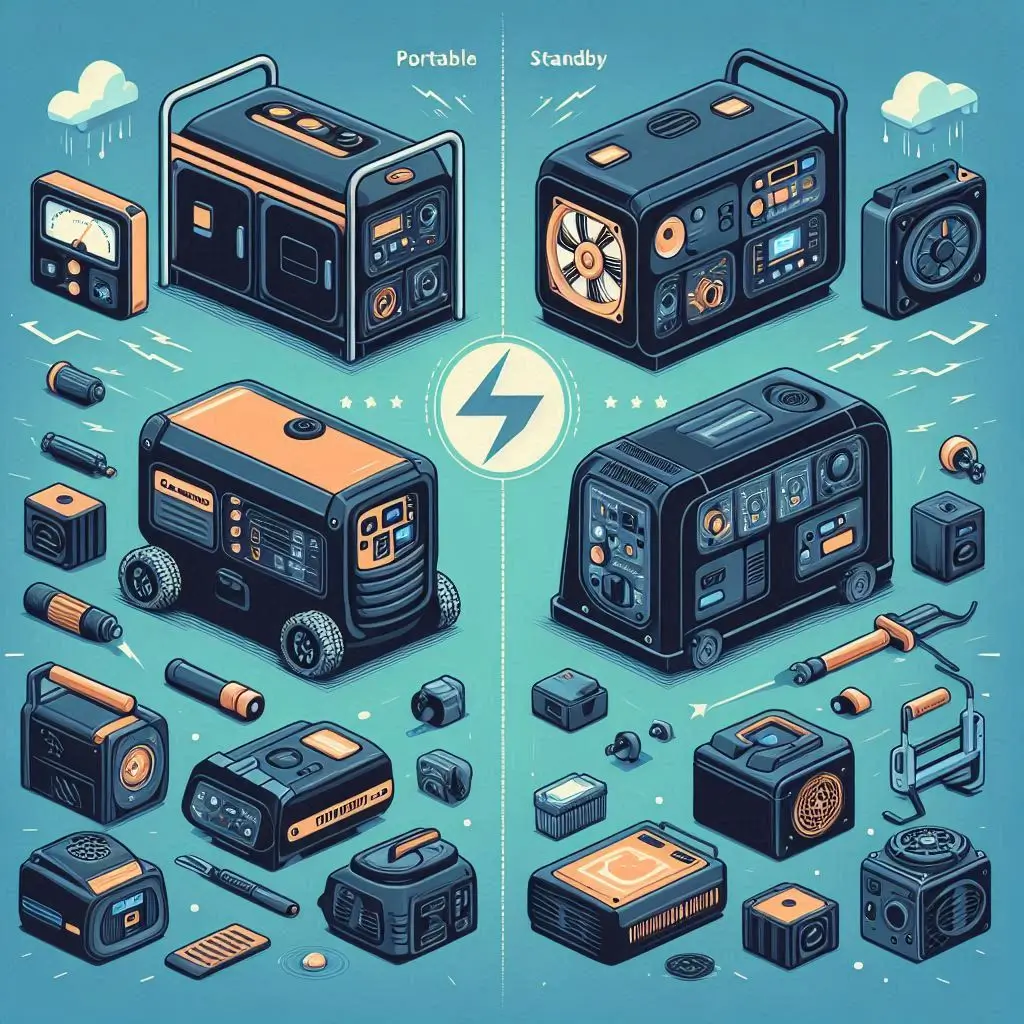
Standby Generators
Benefits and Features of Standby Generators:
Standby generators are permanently installed and automatically provide backup power in the event of a power outage. They are typically powered by natural gas or propane and are designed for long-term use.
-
Continuous Power Supply:
- Automatic Operation: Standby generators automatically detect power outages and start within seconds, ensuring that your air conditioning unit and other essential appliances remain powered without interruption.
- Higher Capacity: These generators generally have a higher capacity than portable models, often ranging from 7,000 to 20,000 watts or more. This makes them suitable for larger homes with central air conditioning systems.
-
Convenience and Safety:
- No Manual Setup Required: Unlike portable generators, which require manual setup and connection, standby generators are permanently installed and connected to your home’s electrical system. This means you don’t need to worry about plugging in your AC unit during an outage.
- Enhanced Safety Features: Standby generators come equipped with various safety features, including automatic shut-off, carbon monoxide detectors, and transfer switches, which prevent back-feeding into the grid.
-
Cost Considerations:
- Initial Investment: While standby generators provide significant benefits, they require a higher upfront investment compared to portable generators. Installation costs can also vary based on your home’s specific electrical setup.
- Maintenance: Standby generators may require periodic maintenance checks to ensure optimal performance, but they generally offer peace of mind for long-term power reliability.
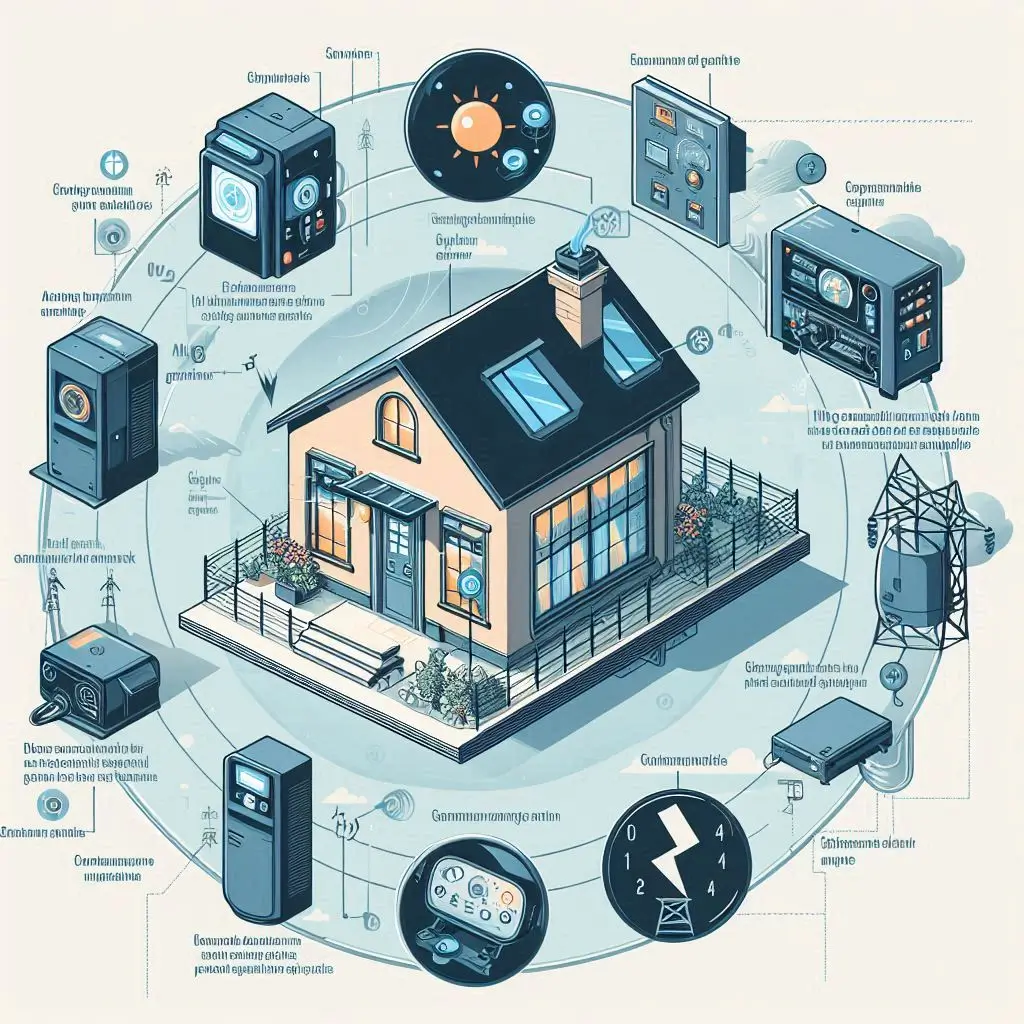
Choosing the Right Generator for Your Air Conditioner
Selecting the right generator for your air conditioning unit is crucial to ensure efficient and reliable operation during power outages. This process involves evaluating various factors, including fuel options and cost considerations. Understanding these elements can help you make an informed decision that meets your energy needs.
Evaluating Fuel Options
When it comes to generators, the type of fuel used significantly impacts performance, availability, and overall operating costs. The three most common fuel types for generators are gasoline, propane, and diesel. Each has its own set of advantages and disadvantages.
-
Gasoline:
- Availability: Gasoline is widely available and easy to find, making it a convenient option for most users.
- Cost: Gasoline generators tend to be less expensive upfront compared to propane and diesel models. However, gasoline prices can fluctuate, affecting long-term operating costs.
- Runtime: Generators powered by gasoline generally have shorter runtimes and may require more frequent refueling, especially when powering high-demand appliances like air conditioners.
- Storage and Stability: Gasoline has a limited shelf life (typically 3 to 6 months) and can degrade, leading to potential engine issues if not used promptly.
-
Propane:
- Clean Burning: Propane is a cleaner-burning fuel, producing fewer emissions than gasoline and diesel. This makes it a more environmentally friendly option.
- Storage: Propane can be stored indefinitely in a proper tank, making it a good choice for long-term preparedness.
- Cost: While propane generators may have a higher upfront cost, propane tends to be less volatile in price compared to gasoline. However, the availability of propane can vary by location.
- Efficiency: Propane generally provides longer runtimes than gasoline, making it a suitable choice for extended power outages.
-
Diesel:
- Durability and Longevity: Diesel generators are known for their durability and can typically run for longer periods without requiring maintenance. They are often preferred for heavy-duty applications.
- Fuel Efficiency: Diesel is more energy-dense than gasoline or propane, meaning diesel generators usually provide more power for longer periods.
- Cost Considerations: Diesel generators tend to have a higher initial cost but may offer lower fuel costs in the long run. However, diesel fuel can be more expensive than gasoline, depending on market conditions.
- Noise Levels: Diesel generators can be noisier than their gasoline and propane counterparts, which may be a consideration for residential use.
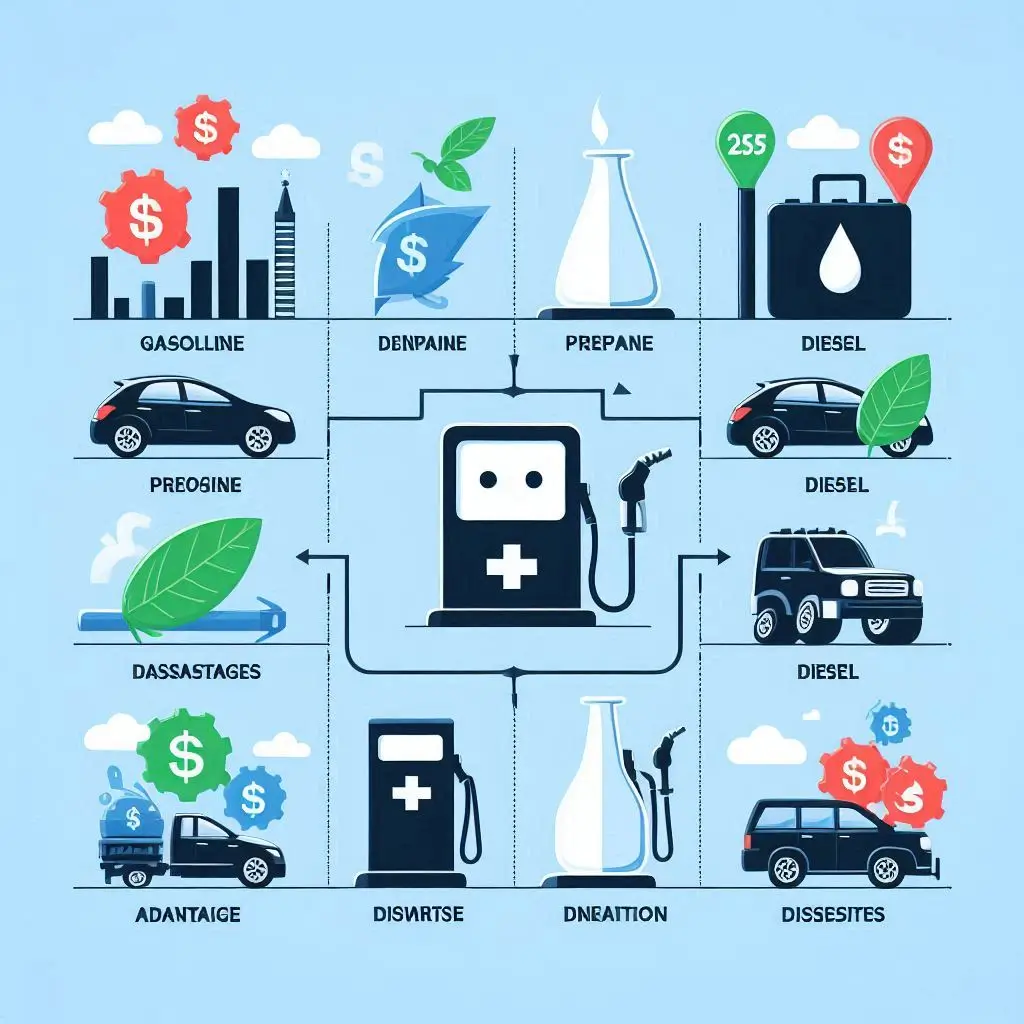
Cost Considerations
When selecting a generator for your air conditioning unit, understanding the cost implications is essential. This includes not only the purchase price of the generator but also installation, maintenance, and operating costs.
-
Initial Purchase Price:
- Generator Cost: Prices for portable generators can range from $500 to $3,000, while standby generators can range from $3,000 to over $15,000, depending on capacity and features.
- Fuel Type Impact: Generally, gasoline generators are less expensive than propane and diesel generators. However, consider the total cost of ownership, including fuel costs and maintenance.
-
Installation Costs:
- Portable Generators: Typically require minimal installation, often just needing a power cord and outlet for connection. This can keep upfront costs lower.
- Standby Generators: Installation can be more complex and may require professional assistance, adding $1,000 to $3,000 to the total cost. This includes wiring the generator to your home’s electrical system and installing necessary transfer switches.
-
Operating Costs:
- Fuel Costs: Fuel prices fluctuate and can significantly impact your overall expenses. Monitor local fuel prices for gasoline, propane, and diesel to estimate long-term costs accurately.
- Maintenance and Repairs: Regular maintenance is essential for optimal generator performance. Budget for routine check-ups, oil changes, and potential repairs. Diesel generators may require more extensive maintenance due to their complexity.
-
Warranty and Support:
- Consider Warranties: Check warranty options offered by manufacturers, as they can affect long-term costs. A generator with a longer warranty may provide peace of mind and reduce future repair expenses.
Connecting Your Air Conditioner to a Generator
Connecting your air conditioning unit to a generator can provide critical support during a power outage, ensuring that your home remains comfortable. However, it is essential to follow safety precautions to protect both yourself and your equipment. This section outlines crucial safety tips for connecting an AC unit to a generator, helping you to execute the process safely and effectively.
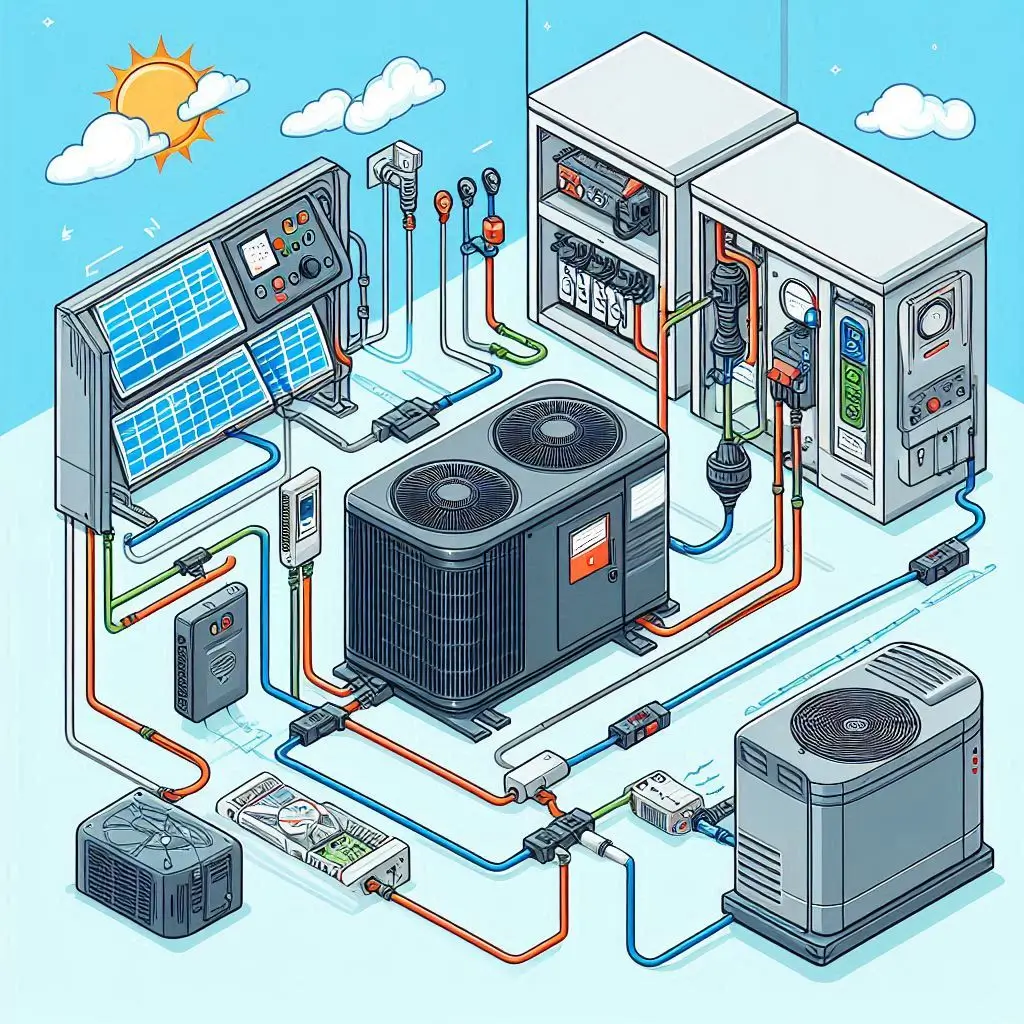
Safety Precautions
When connecting your air conditioner to a generator, adhering to safety precautions is paramount to prevent accidents, equipment damage, or fire hazards. Below are essential safety tips to consider:
-
Use a Transfer Switch:
- Why It Matters: Always use a transfer switch when connecting a generator to your home’s electrical system. A transfer switch prevents back-feeding electricity into the grid, which can endanger utility workers and cause equipment damage.
- Installation: Professional installation of a transfer switch is recommended to ensure proper connections and compliance with local electrical codes.
-
Check Generator Capacity:
- Power Requirements: Before connecting your air conditioner, verify that your generator can handle the starting and running wattage of the unit. This information can typically be found in the AC unit’s specifications or manual.
- Avoid Overloading: Never exceed the generator’s rated capacity, as this can cause overheating and potential failure. If your generator is not powerful enough to run the AC and other appliances simultaneously, prioritize which appliances to connect.
-
Proper Ventilation:
- Carbon Monoxide Risks: Generators emit carbon monoxide, a colorless, odorless gas that can be deadly. Always operate your generator outdoors in a well-ventilated area, away from windows, doors, and vents to prevent carbon monoxide buildup indoors.
- Distance: Keep the generator at least 20 feet away from your home to minimize the risk of inhaling toxic fumes.
-
Use Appropriate Cables:
- Quality Cables: Use heavy-duty extension cords rated for the required amperage to connect your AC unit to the generator. Ensure that the cords are in good condition, with no frayed or damaged insulation.
- Length Considerations: Shorter cables are preferable to reduce power loss. Avoid using multiple extension cords connected together, as this can lead to voltage drop and overheating.
-
Ground the Generator:
- Electrical Safety: Ensure your generator is properly grounded to prevent electrical shock. Follow the manufacturer’s instructions for grounding, as improper grounding can create hazardous situations.
- Use Grounding Rods: If required, install a grounding rod and connect it to the generator to enhance safety.
-
Perform Regular Maintenance:
- Generator Maintenance: Regularly inspect and maintain your generator to ensure it operates efficiently. This includes checking oil levels, air filters, and spark plugs.
- Test the System: Periodically test your generator with the air conditioner connected to ensure everything works correctly. This proactive approach can help identify any issues before an emergency occurs.
-
Read the Manufacturer’s Instructions:
- Follow Guidelines: Always refer to the user manuals for both your air conditioning unit and generator. Each model may have specific guidelines and recommendations for safe operation.
-
Monitor Your System:
- Stay Vigilant: Once connected, monitor the generator and AC unit for any signs of trouble, such as unusual noises, overheating, or flickering lights. If any issues arise, disconnect the unit immediately and seek professional assistance.
FAQ Section: What Size Generator Do I Need to Run My Air Conditioner?
This FAQ section addresses common questions regarding selecting the right generator size for running air conditioning units. By providing detailed and informative answers, this section aims to enhance user experience and improve search engine ranking through effective SEO techniques.
FAQ 1: Can I run my air conditioner on a generator?
Answer: Yes, you can run your air conditioner on a generator, but it is crucial to select the appropriate generator size and type for your specific AC unit. Generators provide backup power during outages, allowing your AC to operate efficiently. To ensure proper functioning, consider the starting and running wattage requirements of your air conditioner. Portable generators can be suitable for smaller units, while larger, central air conditioning systems may require a standby generator to provide adequate power. Always follow safety guidelines when connecting your AC to a generator.
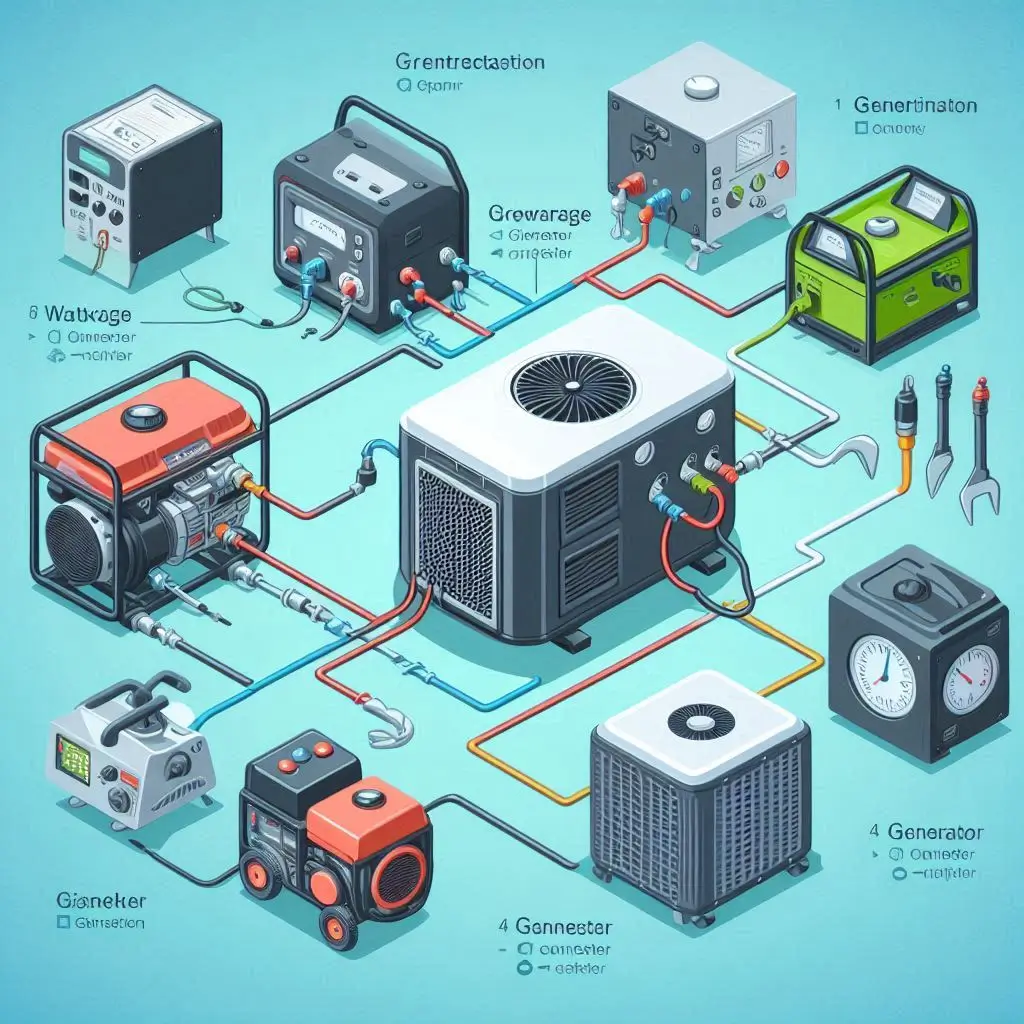
FAQ 2: What size generator do I need for my air conditioner?
Answer: The size of the generator you need for your air conditioner depends on the AC unit’s wattage requirements. To determine this, check the BTU (British Thermal Unit) rating of your AC unit. Generally, air conditioners require approximately 1,500 to 3,000 watts to start and around 1,000 to 2,000 watts to run continuously. For example, a typical central air conditioning system may need 4,000 to 6,000 watts. It’s advisable to select a generator with a higher wattage capacity than your AC unit’s requirements to avoid overloading.
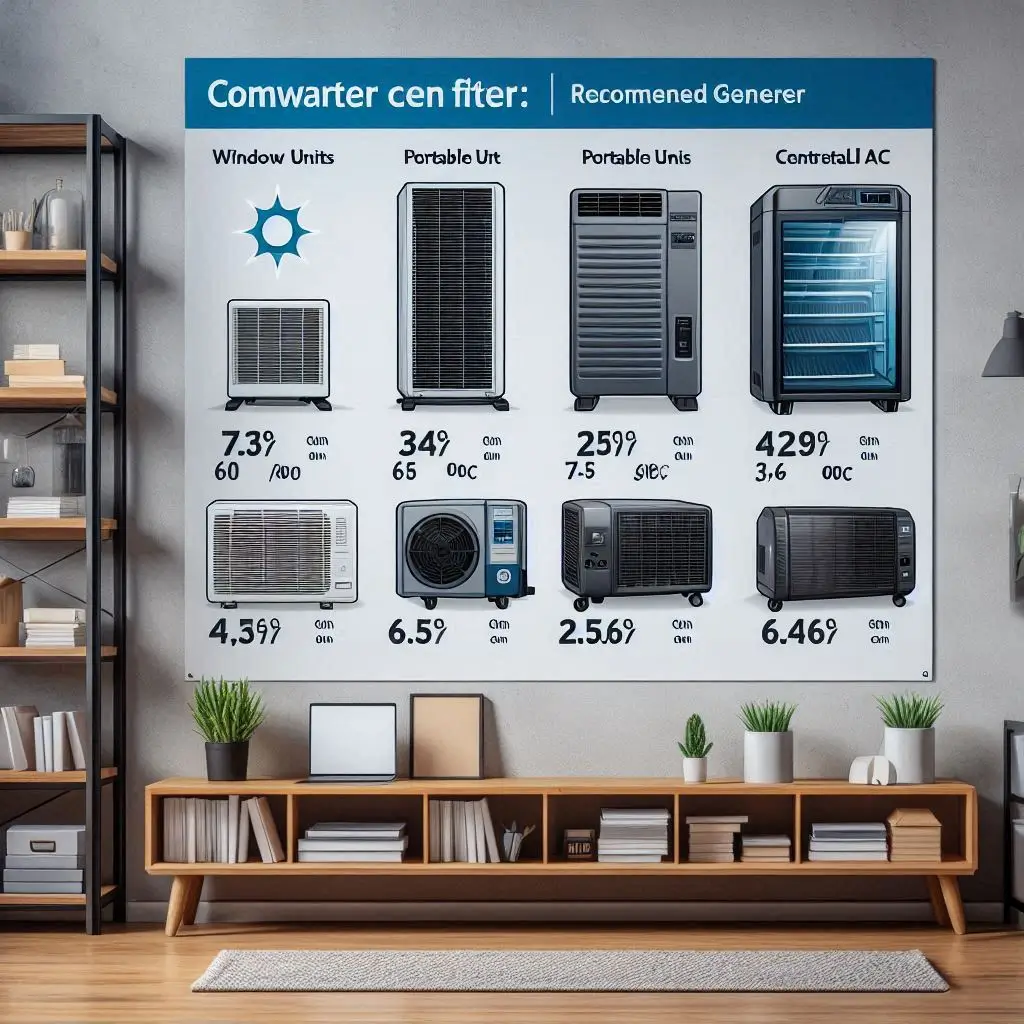
FAQ 3: What type of generator do I need for my air conditioner?
Answer: The type of generator needed for your air conditioner can be either a portable generator or a standby generator. Portable generators are ideal for smaller, window-mounted AC units, offering flexibility and mobility. In contrast, standby generators are more suitable for central air conditioning systems as they provide a continuous power supply and can automatically start during outages. When selecting a generator, consider factors such as fuel type (gasoline, propane, diesel), power capacity, and noise level.
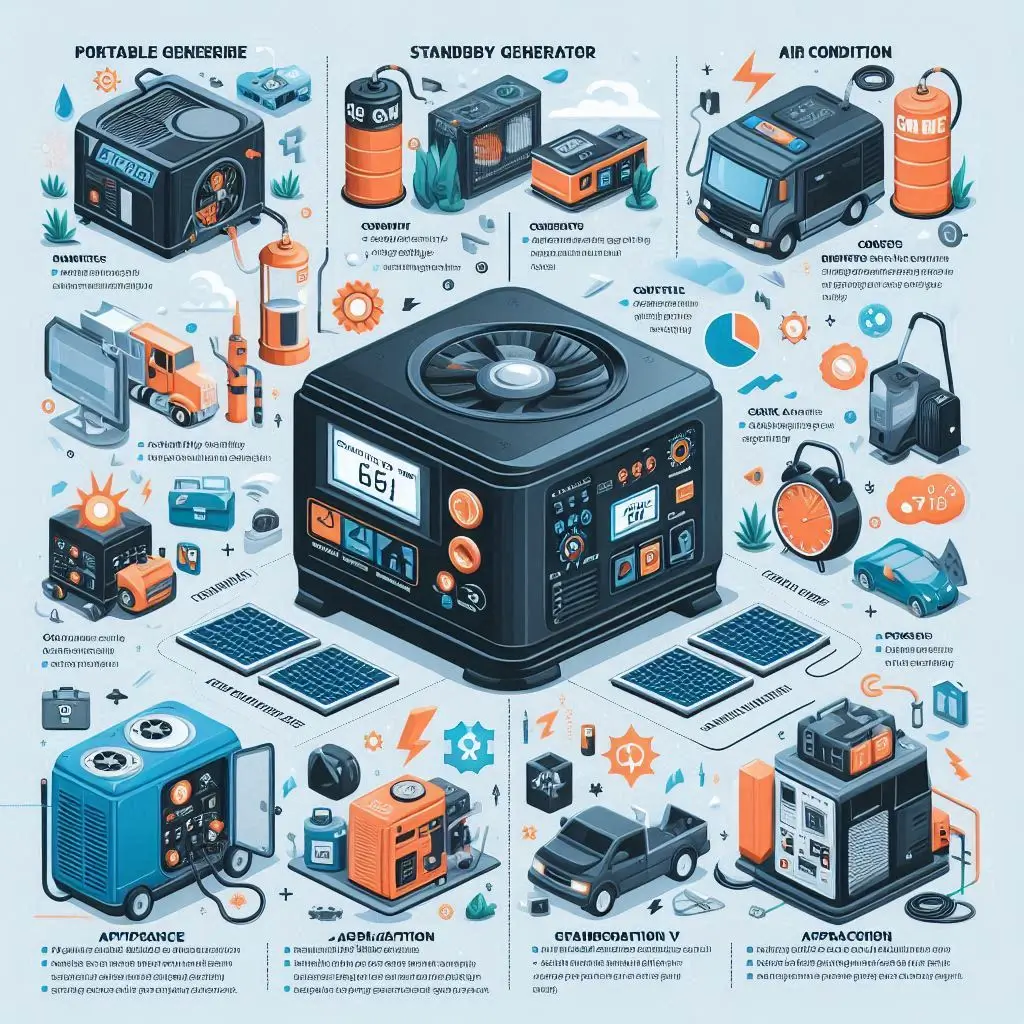
FAQ 4: How do I connect my air conditioner to a generator safely?
Answer: To connect your air conditioner to a generator safely, follow these steps:
- Use a transfer switch to prevent back-feeding electricity into the grid.
- Verify the generator’s wattage to ensure it meets or exceeds the AC unit’s requirements.
- Position the generator outdoors in a well-ventilated area, at least 20 feet away from windows and doors to avoid carbon monoxide exposure.
- Utilize heavy-duty extension cords rated for the required amperage.
- Ground the generator according to the manufacturer’s instructions.
Conclusion
In conclusion, understanding the right generator size to run your air conditioner is crucial for maintaining comfort during power outages. By determining your AC unit’s power requirements, selecting the appropriate generator type, and following safety precautions for connection, you can ensure reliable operation and efficiency. Whether you opt for a portable generator for smaller units or a standby generator for central air systems, being informed about your options will empower you to make the best choice for your home. Regular maintenance and adherence to safety guidelines are also essential for optimal performance. By equipping yourself with the knowledge presented in this guide, you can confidently navigate the process of choosing and connecting a generator to your air conditioner, ensuring that you stay cool and comfortable no matter the circumstances. If you have further questions or need assistance with HVAC services, don’t hesitate to reach out to us for expert guidance and support.


